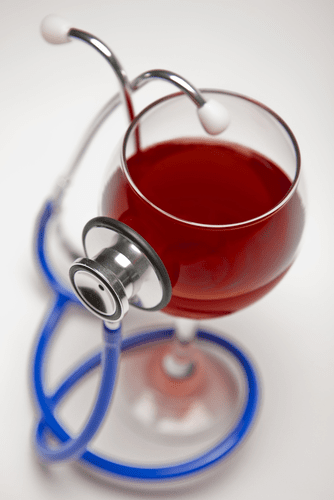Warning signs include frequent binge drinking, a high tolerance for alcohol, and drinking to avoid EtOH withdrawal symptoms. The American Psychiatric Association defines AUD based on criteria like impaired control over alcohol use and continued use despite social or health problems. Chronic EtOH abuse can lead to numerous health issues, including liver disease, heart conditions, cancer, and mental health disorders. People who develop physical dependence ETOH abuse on alcohol typically require treatment and support to stop drinking safely. Alcohol use disorder (AUD) treatment programs consist of medical care, mental health treatment, counseling, education, holistic therapies, and other treatments. Alcoholism or alcohol use disorder can develop due to heavy, persistent alcohol intake, such as binge drinking (AUD).

The Serious Consequences of Long-Term ETOH Abuse
Chronic or excessive ETOH abuse can cause inflammation of the pancreas, causing the organ to reduce insulin production, and increasing the risk of diabetes. Excessive alcohol intake can also reduce insulin sensitivity along with products which can contribute to the risk of developing diabetes. Over-consuming ETOH drinks with high ABV percentages in excess can lead to alcohol poisoning and other serious health complications. Recognizing the signs of ETOH dependence can be challenging, as individuals often go to great lengths to hide their use.
Begin your journey to recovery.
- Understanding these dangers is the first step toward motivating change.
- Ethanol is the base form of alcohol that is used to make all alcoholic beverages that are safe for human consumption.
- The longer you engage in alcohol abuse, the more likely it is that your health will suffer immensely.
- This process is exploited in the production of beer, wine, and spirits, where different sugar sources and yeast strains are used to create a variety of alcoholic beverages.
- EtOH abuse, shorthand for ethanol abuse, comprises frequent binge drinking, physical dependence, or using alcohol to cope emotionally.
The longer an addiction continues, the more difficult it can be to get help and to stay dry. I am currently in school and working to grow in competence to better support our community. As a recovering individual I know the struggles that you or a loved one can go through and that there is help for anything you may be struggling with.
What is EtOH Abuse?
Group meetings are available in most communities at low or no cost, and at convenient times and locations—including an increasing presence online. This means they can be especially helpful to individuals at risk for return to drinking. Combined with medications and behavioral treatment provided by health care professionals, mutual-support groups can offer a valuable added layer of support. This can be hard because it might cause withdrawal symptoms like shaking, sweating, feeling sick, or feeling very anxious. Doctors and nurses help keep people safe and comfortable during detox.

From its impact on the human body to the signs of abuse and the dangers of excessive consumption, understanding the complexities of ethanol abuse is crucial. Ethanol addiction sufferers often consume alcoholic beverages in large amounts, such as through binge drinking. Large amounts of ethanol-containing drinks might also be consumed at unusual times, such as early in the morning before work or school. Some people who abuse ethanol have even been known to drink secretly on the job.
While it can be extremely difficult to stop drinking, it is possible with professional help. Because alcohol withdrawal symptoms can be severe and life-threatening, you should always attend a medical detox center when you have an alcohol addiction. Nova Recovery Center is a trusted drug and alcohol rehab facility offering personalized treatment programs across the United States. With a focus on long-term recovery, our evidence-based services include medical detox, inpatient rehab, outpatient programs, and sober living.

What is the difference between ETOH and alcohol abuse?
Drinking during pregnancy can also lead to fetal alcohol spectrum disorders (FASDs), miscarriage, stillbirth, and developmental problems. Alcohol intoxication can lead to behavior changes, poor decision-making, and impaired motor functions. This can increase your risk of physical injury, property damage, and unprotected sex. This is done mainly to improve taste and to lessen the severity of alcohol’s effects.
Health professionals sometimes prescribe medications to reduce the symptoms of withdrawal. Other medications can help you quit drinking by suppressing alcohol cravings or making you feel sick when alcohol enters your body. If you have a history of withdrawal symptoms, see a health professional before quitting. You should also see a professional before quitting alcohol if you have other health conditions. For example, any alcohol consumption by a pregnant person can be considered alcohol misuse, as well as drinking under the legal age of 21. Remember, self-diagnosis is not a substitute for professional medical advice.
Addiction specialists work closely https://marcusdaviscolleges.com/10-powerful-symbols-to-honor-your-sobriety-journey/ with participants to develop personalized treatment plans, guiding them toward the milestone of long-term sobriety. Certain risk factors are known to increase the chances of developing ethanol addiction. An existing addiction to ethanol may also worsen because of these factors. Drinking too much alcohol can weaken the immune system, making the body a much easier target for disease.
- Studies show most people with this condition recover, meaning they reduce how much they drink, or stop drinking altogether.
- Outpatient treatment is more flexible and allows individuals to work, go to school, or attend to family obligations.
- There was a notable increase of over 25% in alcohol-related deaths from 2019 to 2020.
EtOH abuse can be difficult to manage alone, especially when someone is experiencing dependence or withdrawal symptoms. For many people, the decision to seek help comes after months or even years of trying to manage it on their own. That struggle can feel isolating, but fortunately, recovery isn’t something anyone has to face by themselves.
The stress and isolation induced by the pandemic seem to have exacerbated harmful drinking, particularly among certain demographics. There was a notable increase of over 25% in alcohol-related deaths from 2019 to 2020. In 2020, among adults under 65, more individuals succumbed to alcohol-related causes than to COVID-19 itself. By fostering supportive and understanding environments, they can help individuals feel more secure and less likely to turn to ethanol as a coping mechanism. Beyond physical health concerns, addiction can also cause significant emotional and psychological distress. It can strain relationships with loved ones, lead to job loss, drug addiction treatment and exacerbate mental health issues, including anxiety and depression.




